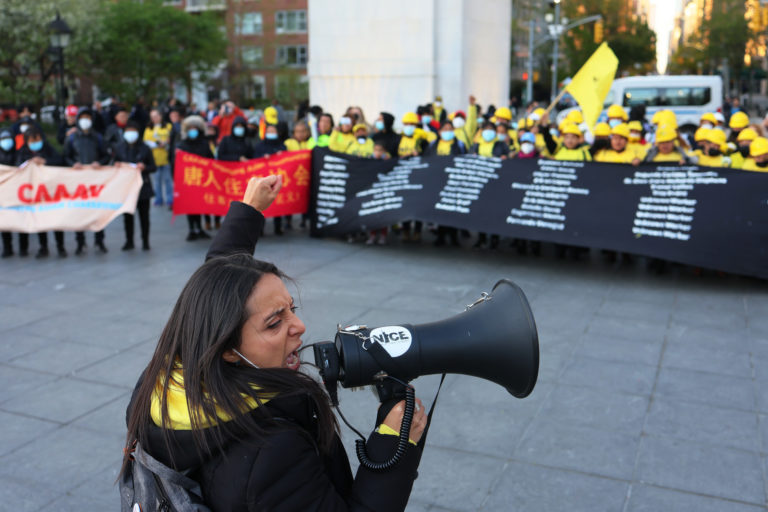Lauren Godles is a student at Harvard Law School.
In February, we reported that the DOL seemed like the best hope for Senate cafeteria workers who had been reclassified and denied the benefits they anticipated in their new contract with Restaurant Associates (RA). While the DOL investigation is ongoing, the workers have also made some promising advances through a top Capitol Administrator and a Senate Appropriations Legislative Branch subcommittee.
Architect of the Capitol Stephen T. Ayers told a legislative subcommittee last Tuesday that suspicions had been raised about a widespread problem of reclassifications shortly after the renewed RA contract was signed last December. These “suspicions” were likely bolstered by the extensive campaigns of the workers themselves to call attention to and attempt to remedy the “wage theft.” Roll Call reports that last month, Ayers met with several Senate Democrats about this issue, and they demanded a thorough investigation. As a result, Ayers and his deputies interviewed 86 workers and found that RA had properly classified only 35 of them. RA responded by immediately reclassifying 35 of the 51 found to be improperly classified. This leaves 16 workers still in dispute. Half of those are currently being negotiated, and half of them have been referred to DOL.
Sen. Brian Schatz (D-Hawaii), the ranking member of the subcommittee, made two significant comments at last Tuesday’s hearing that cast doubt on the future of the RA contract in the Senate. First, he was quoted in the Washington Post as saying “Restaurant Associates improperly, intentionally and systematically misclassified employees.” Second, he asked Ayers whether it would be possible to reconsider the contract with RA, given the recent findings. These telling statements support the possibility of ending RA’s contract, especially given that the NLRB has “found merit in allegations that Restaurant Associates violated labor laws” in the past in connection with these workers. Good Jobs Nation, the group that has been organizing the workers, has advocated for the contract to be re-bid, based on the idea that wage theft constitutes a breach of the contract by RA.
The Congressional Representatives who met with Ayers and put pressure on him and his staff to investigate possible wage theft are to be applauded, as the investigations led to the immediate reclassification of 35 workers. Those are 35 people for whom the wage increase may mean the difference between having to work one job or two. However, it is the DOL that has the authority to order back pay, withhold funds from the contractor, cancel the contract, or even disbar the contractor from future federal contracts. And the politicians who frequent the cafeterias in question must continue to exert pressure on DOL to take swift and appropriate actions against RA for actions found to be intentional violations of the contract.






Daily News & Commentary
Start your day with our roundup of the latest labor developments. See all
December 18
New Jersey adopts disparate impact rules; Teamsters oppose railroad merger; court pauses more shutdown layoffs.
December 17
The TSA suspends a labor union representing 47,000 officers for a second time; the Trump administration seeks to recruit over 1,000 artificial intelligence experts to the federal workforce; and the New York Times reports on the tumultuous changes that U.S. labor relations has seen over the past year.
December 16
Second Circuit affirms dismissal of former collegiate athletes’ antitrust suit; UPS will invest $120 million in truck-unloading robots; Sharon Block argues there are reasons for optimism about labor’s future.
December 15
Advocating a private right of action for the NLRA, 11th Circuit criticizes McDonnell Douglas, Congress considers amending WARN Act.
December 12
OH vetoes bill weakening child labor protections; UT repeals public-sector bargaining ban; SCOTUS takes up case on post-arbitration award jurisdiction
December 11
House forces a vote on the “Protect America’s Workforce Act;” arguments on Trump’s executive order nullifying collective bargaining rights; and Penn State file a petition to form a union.